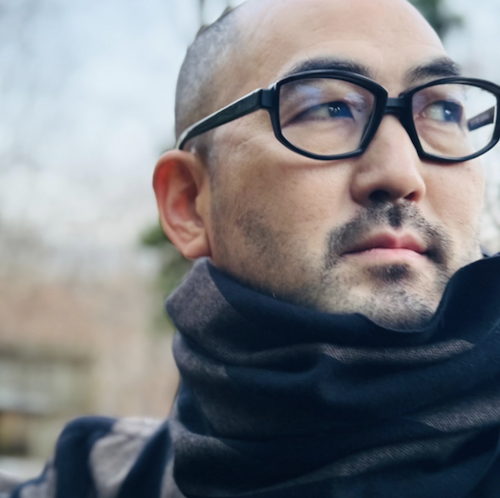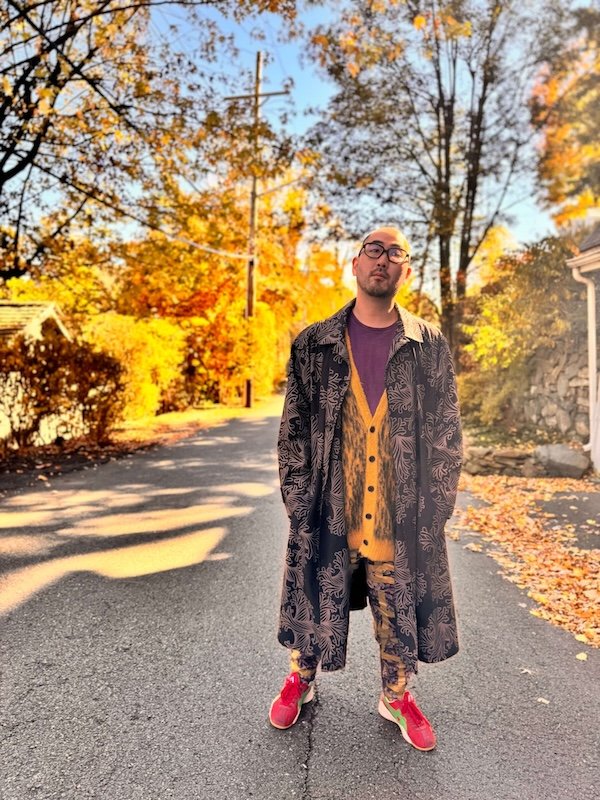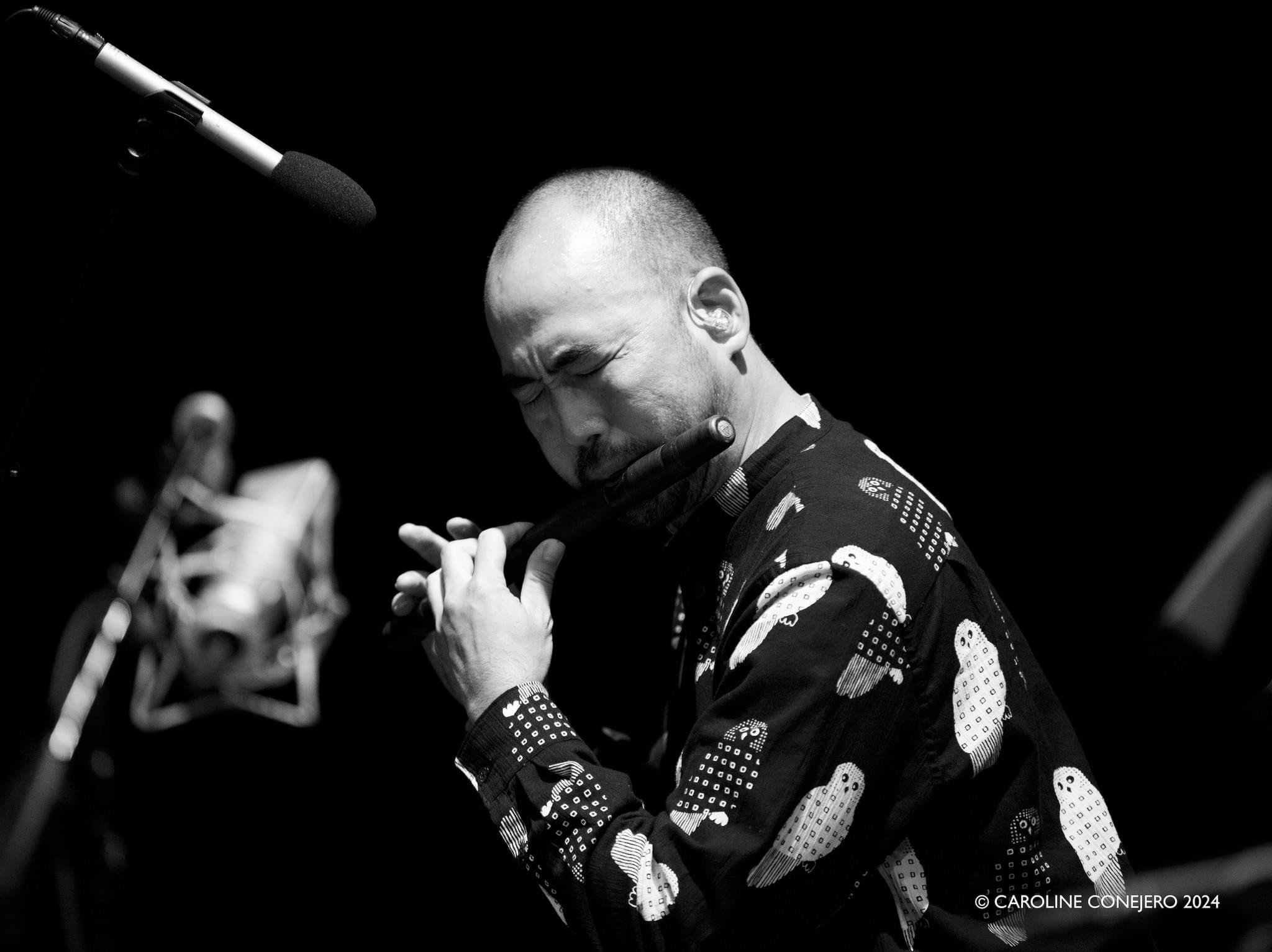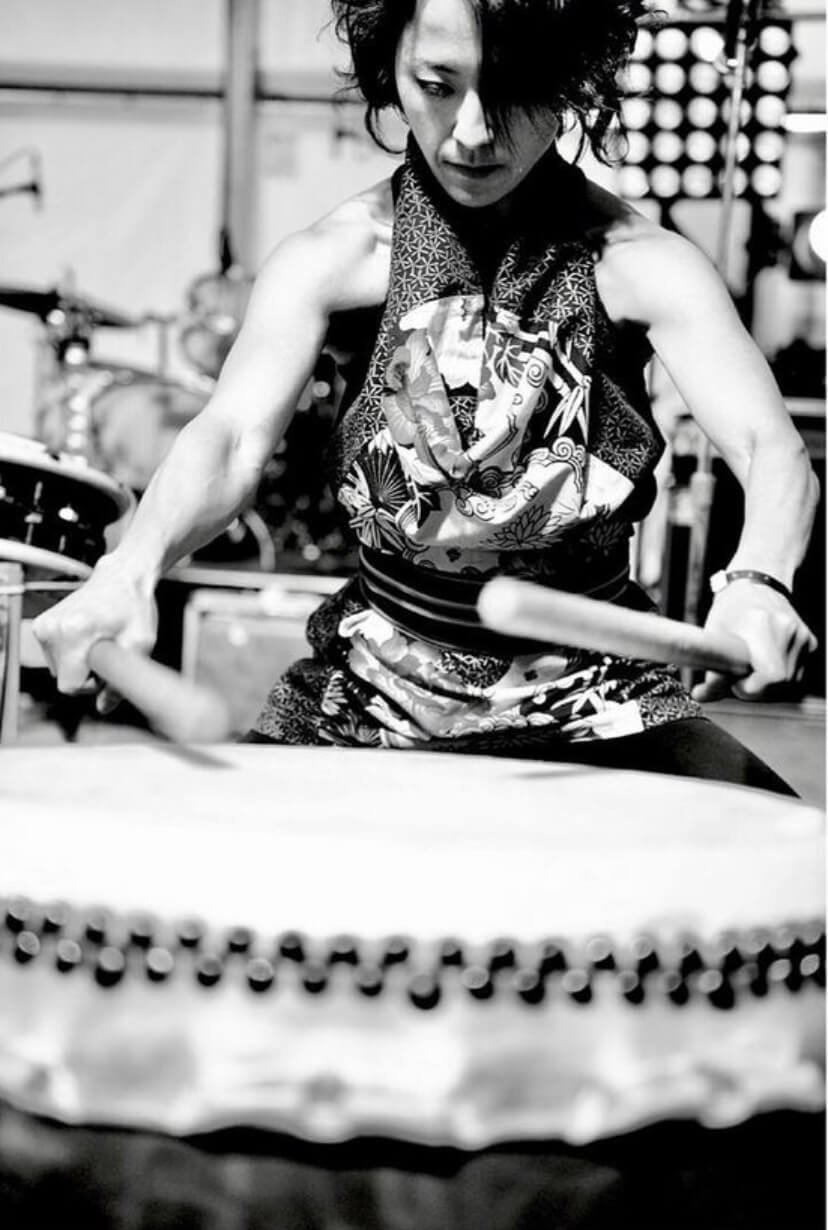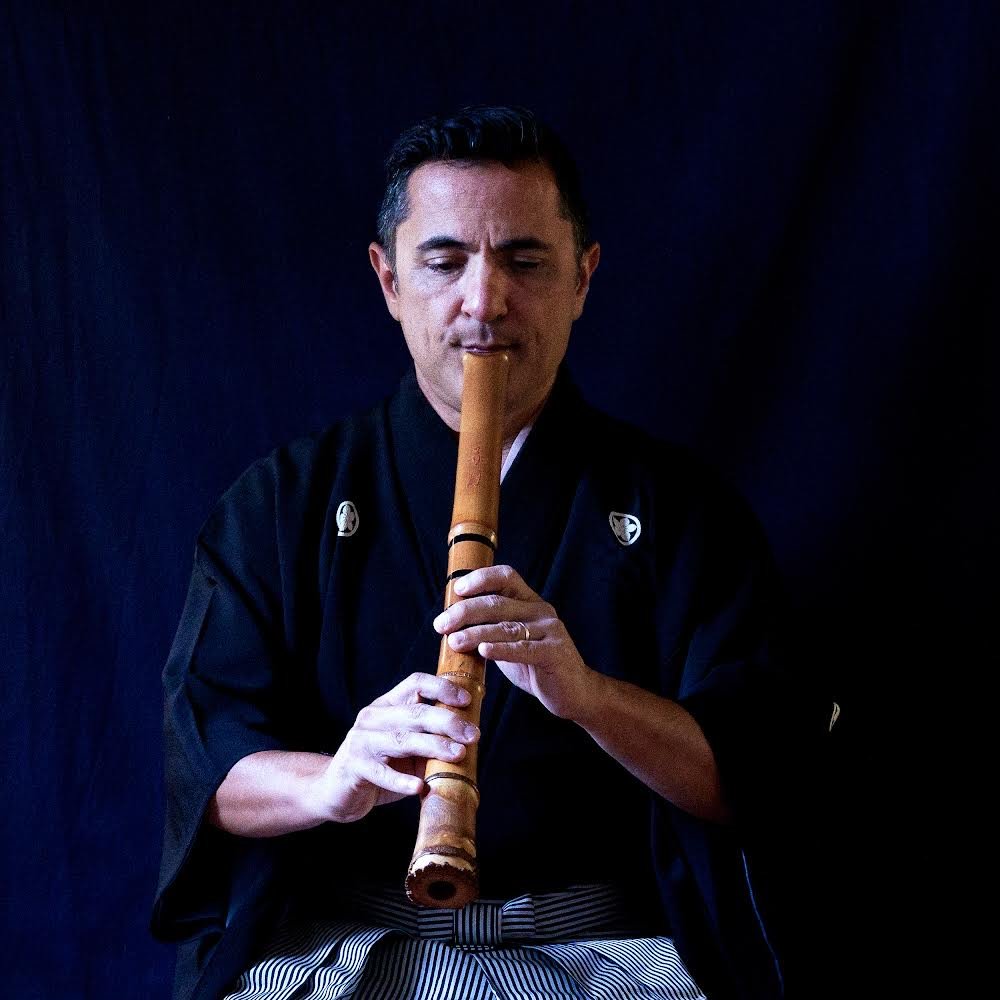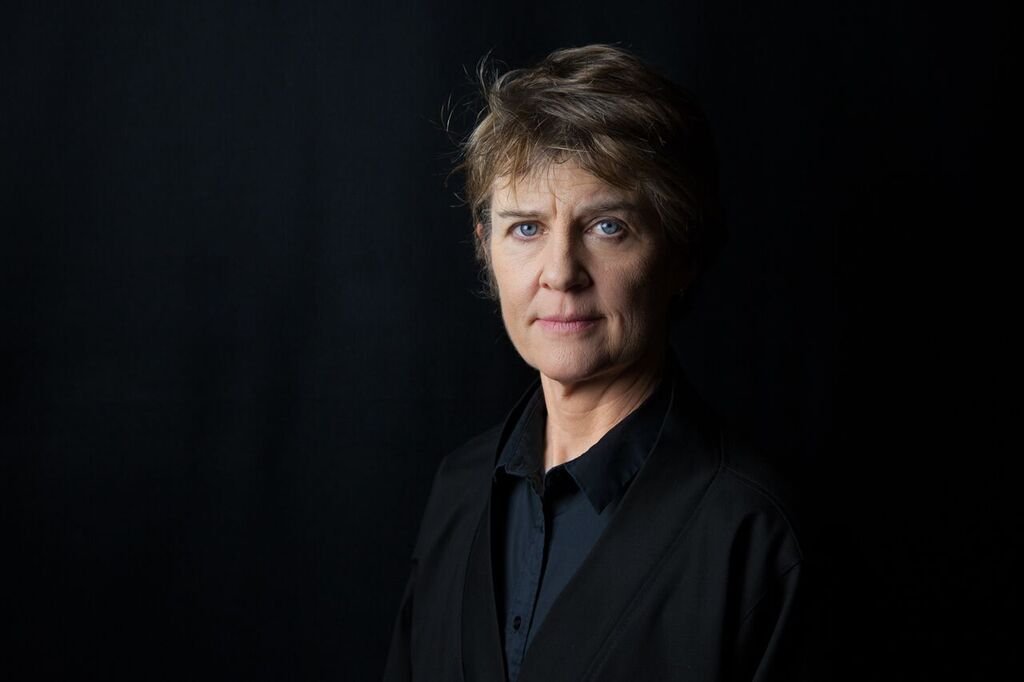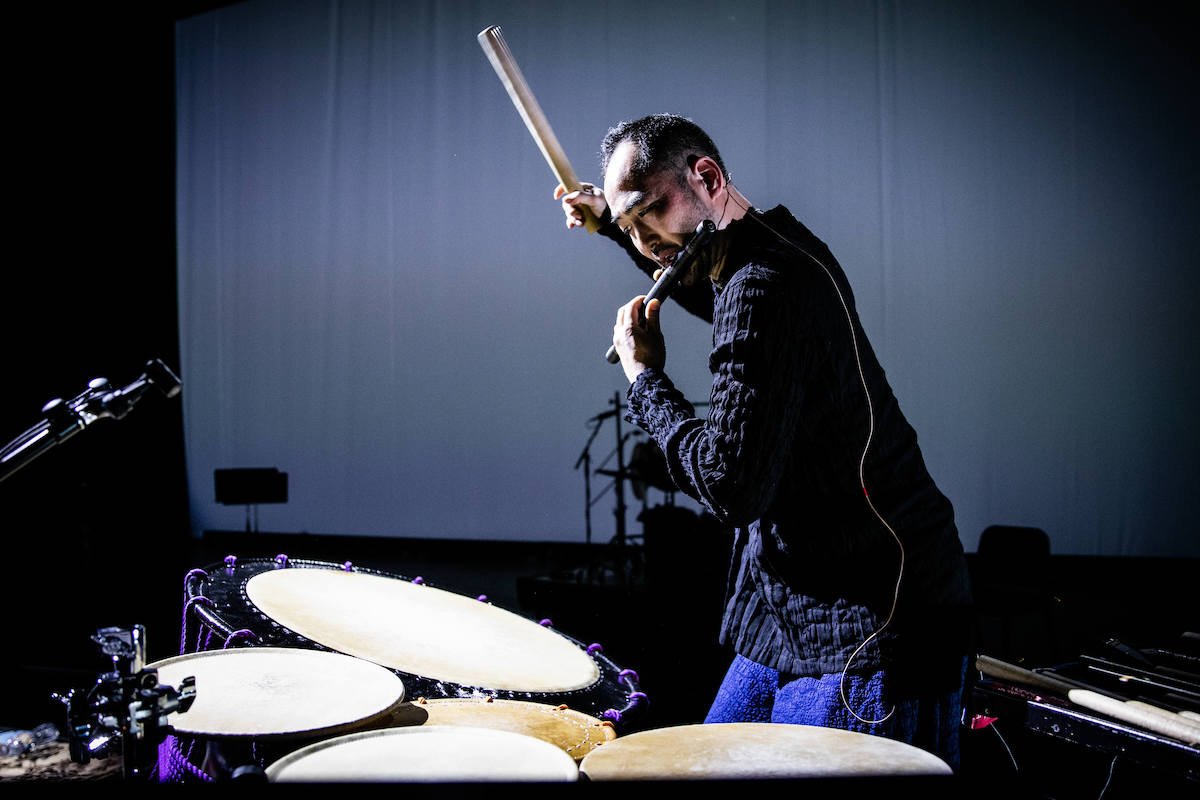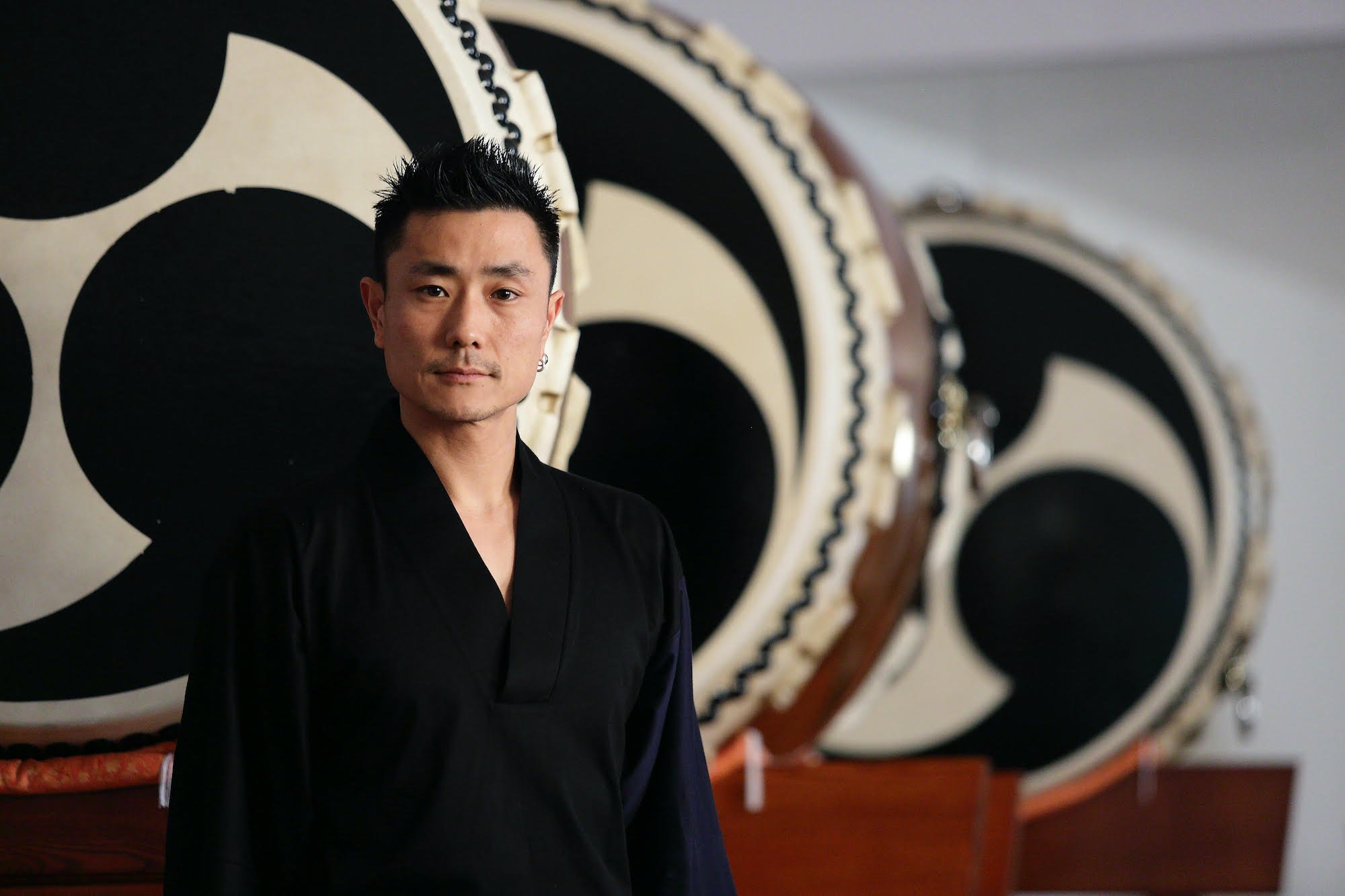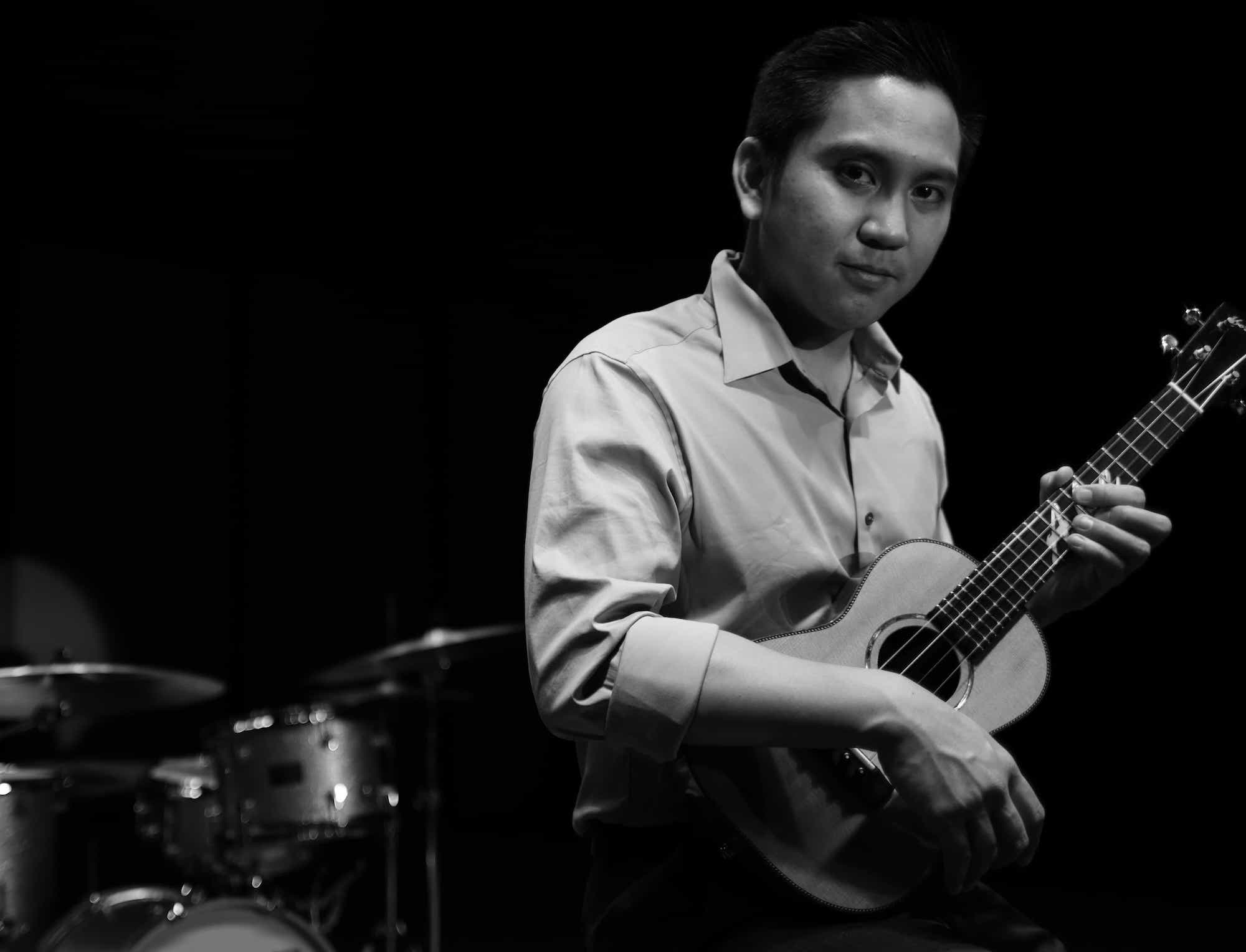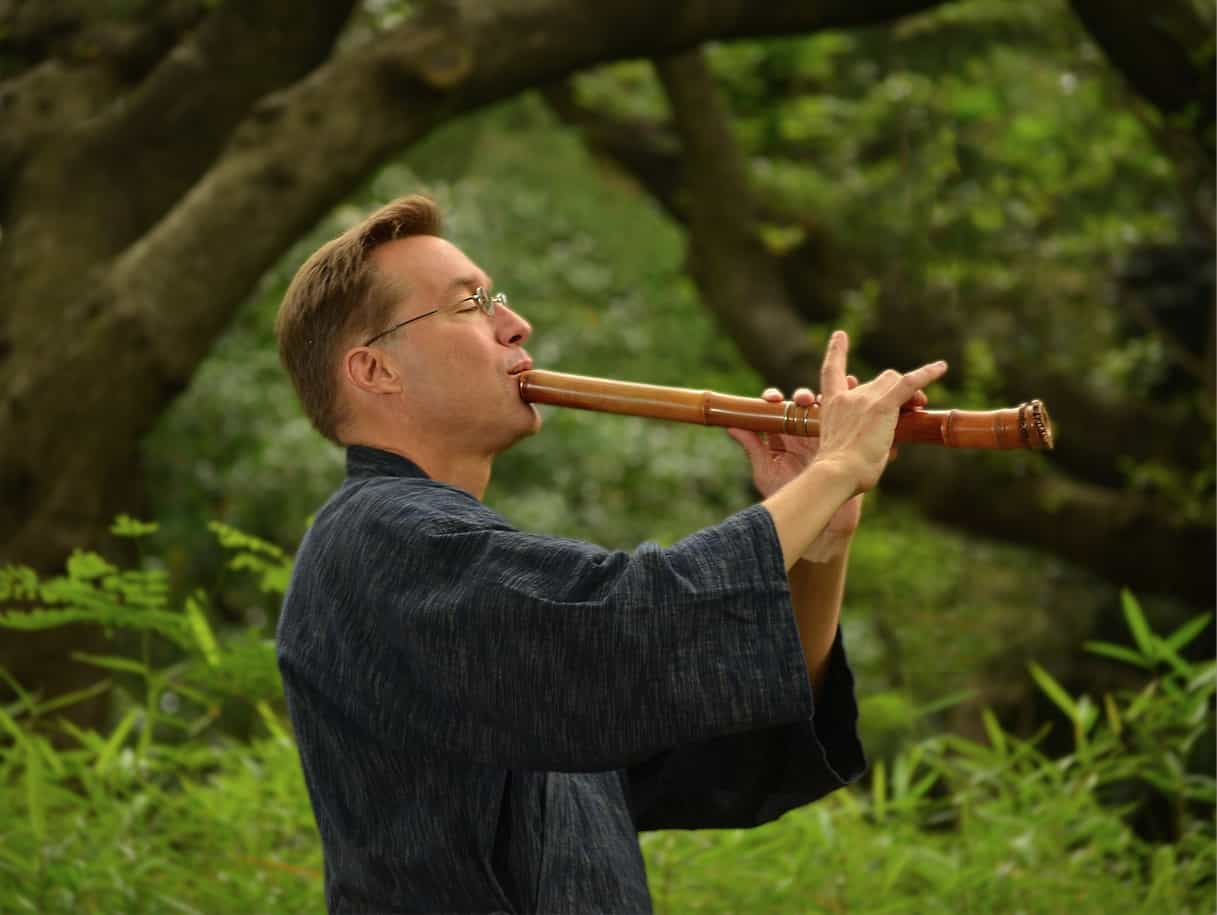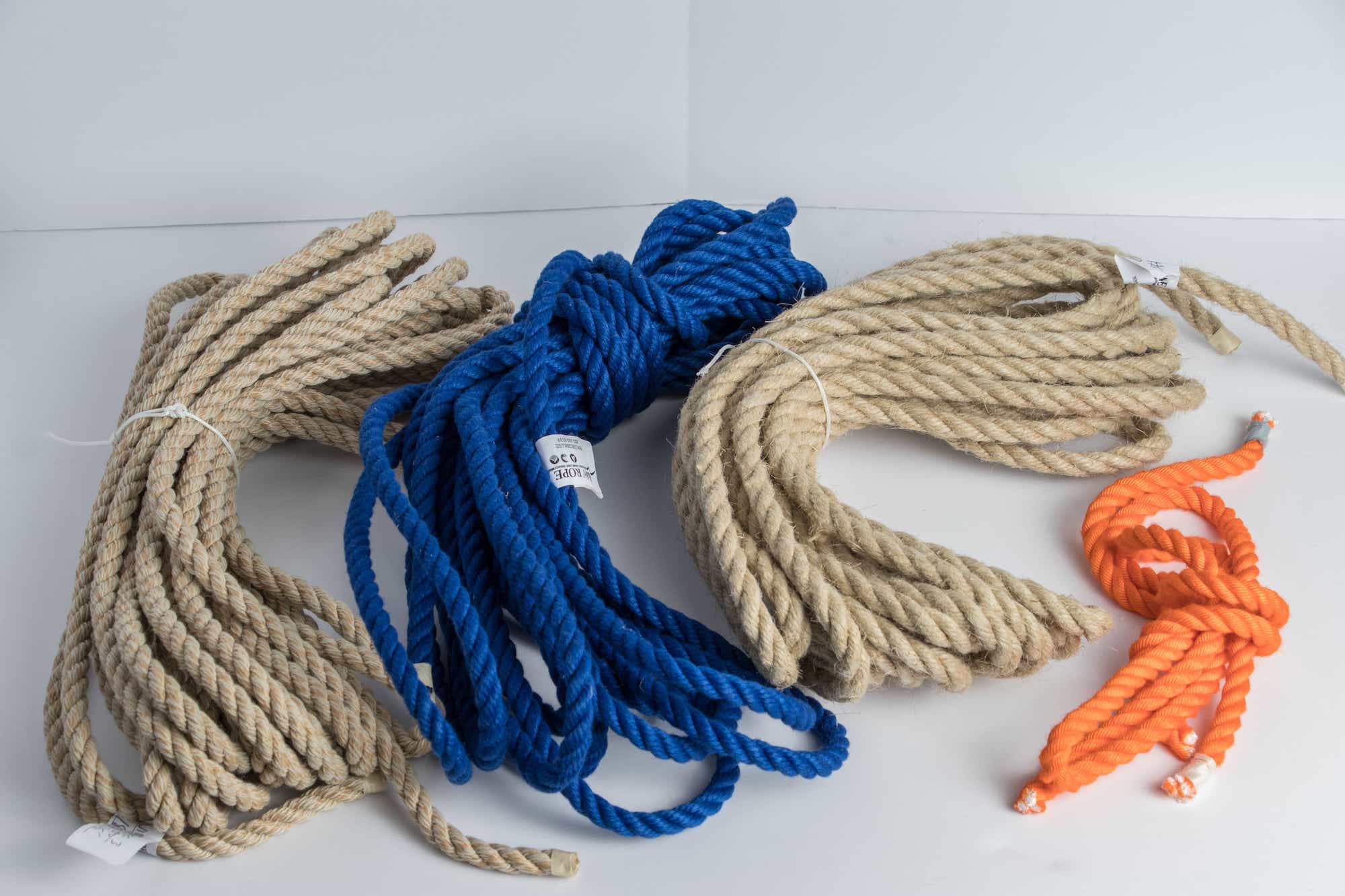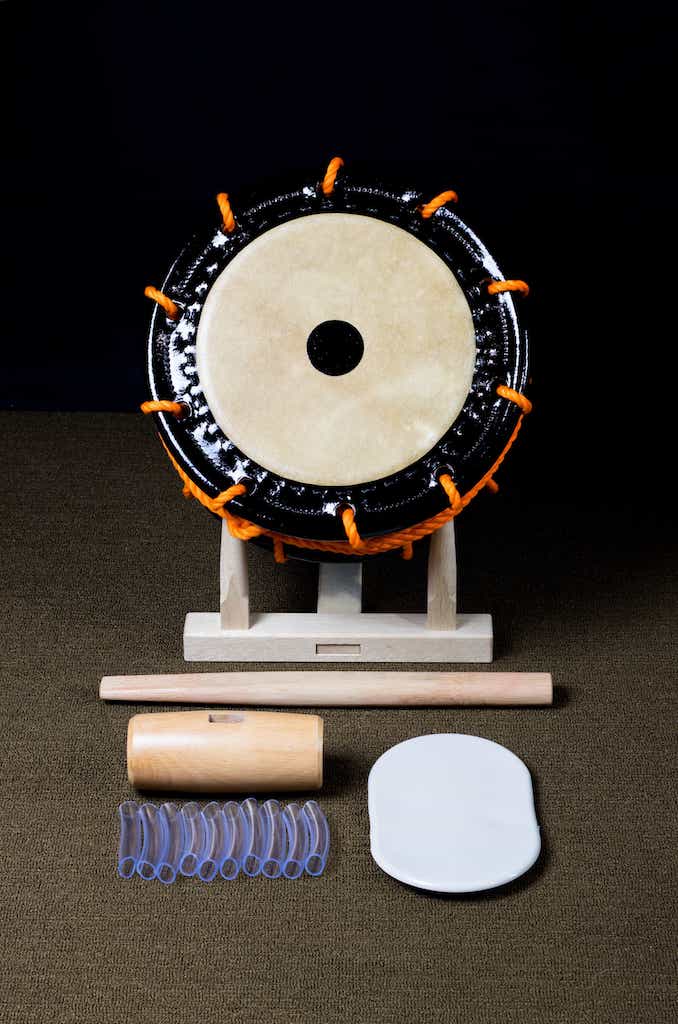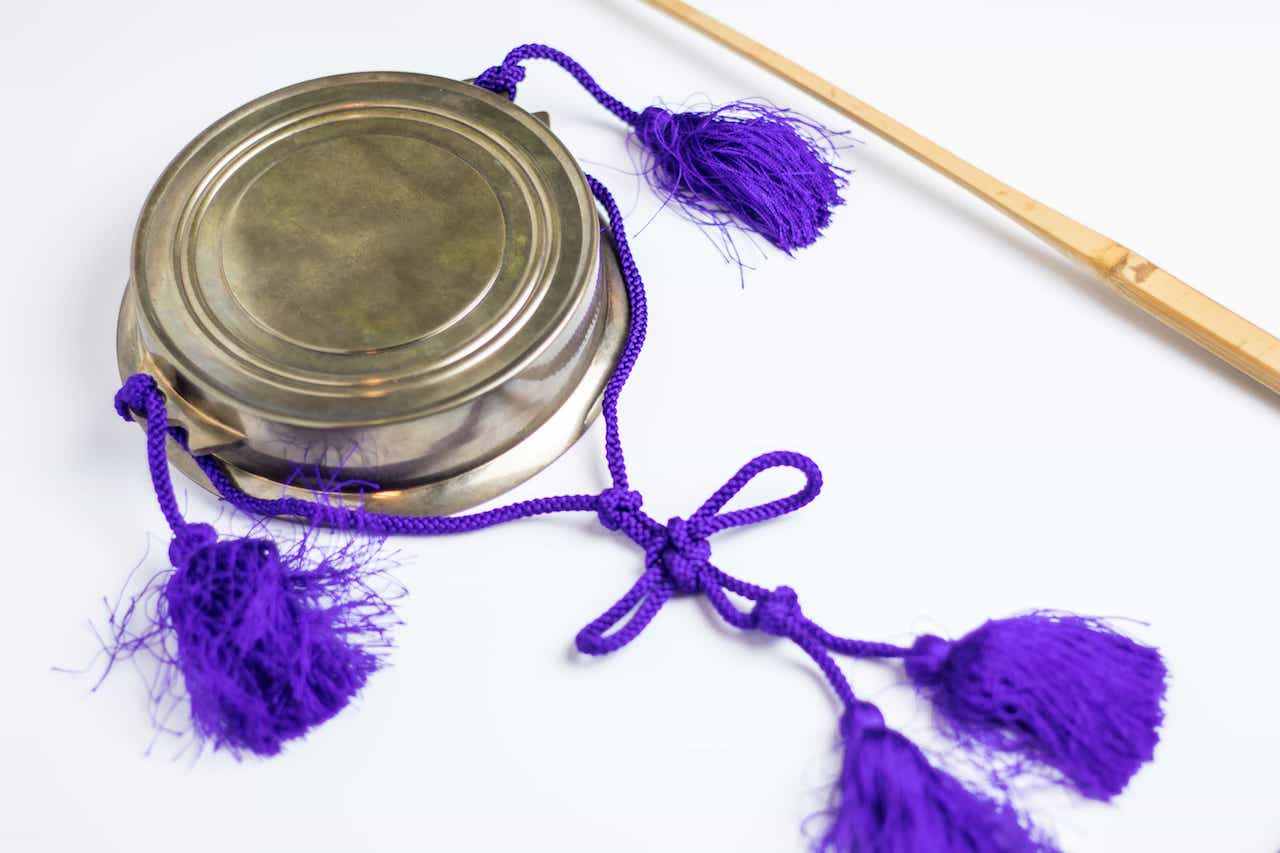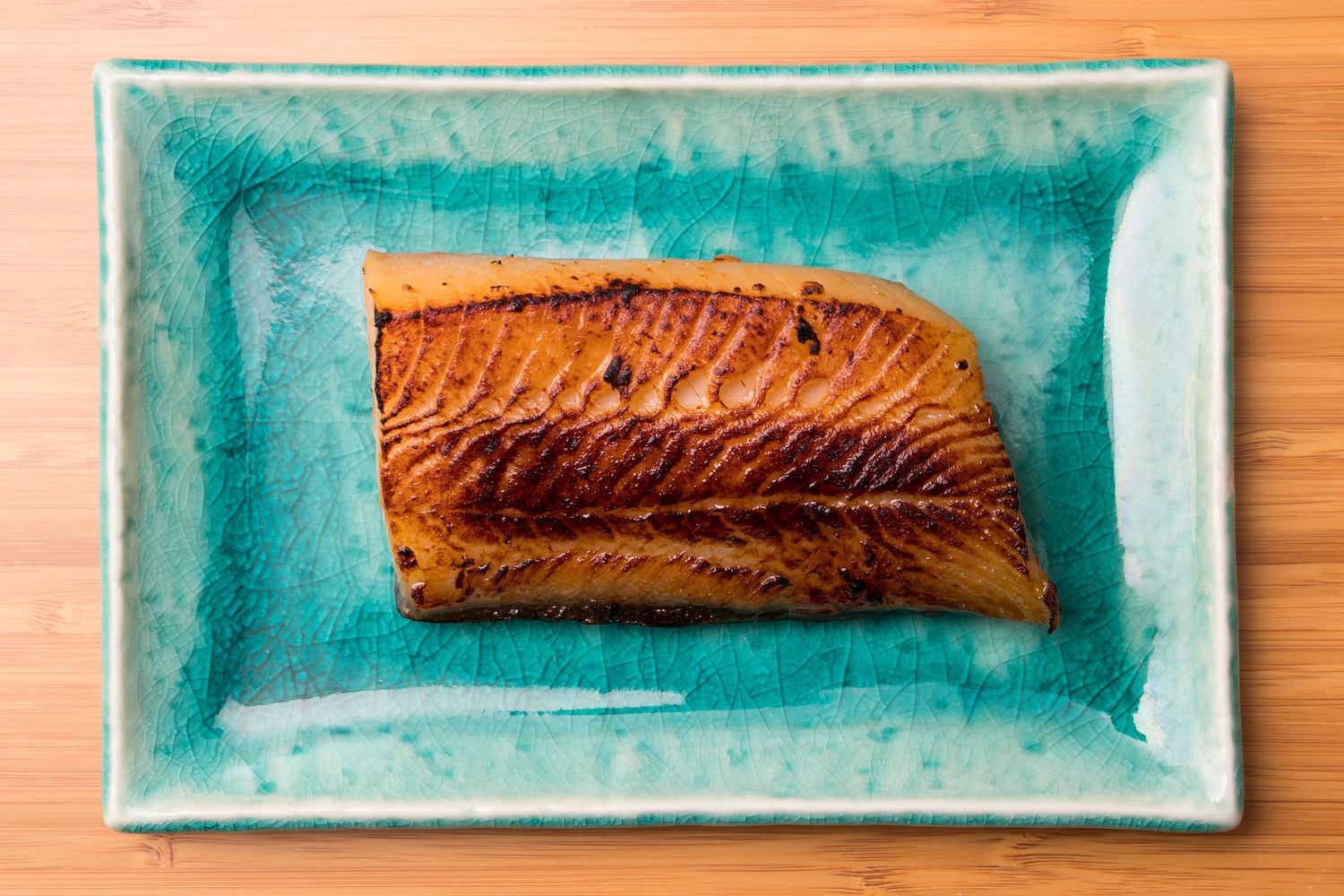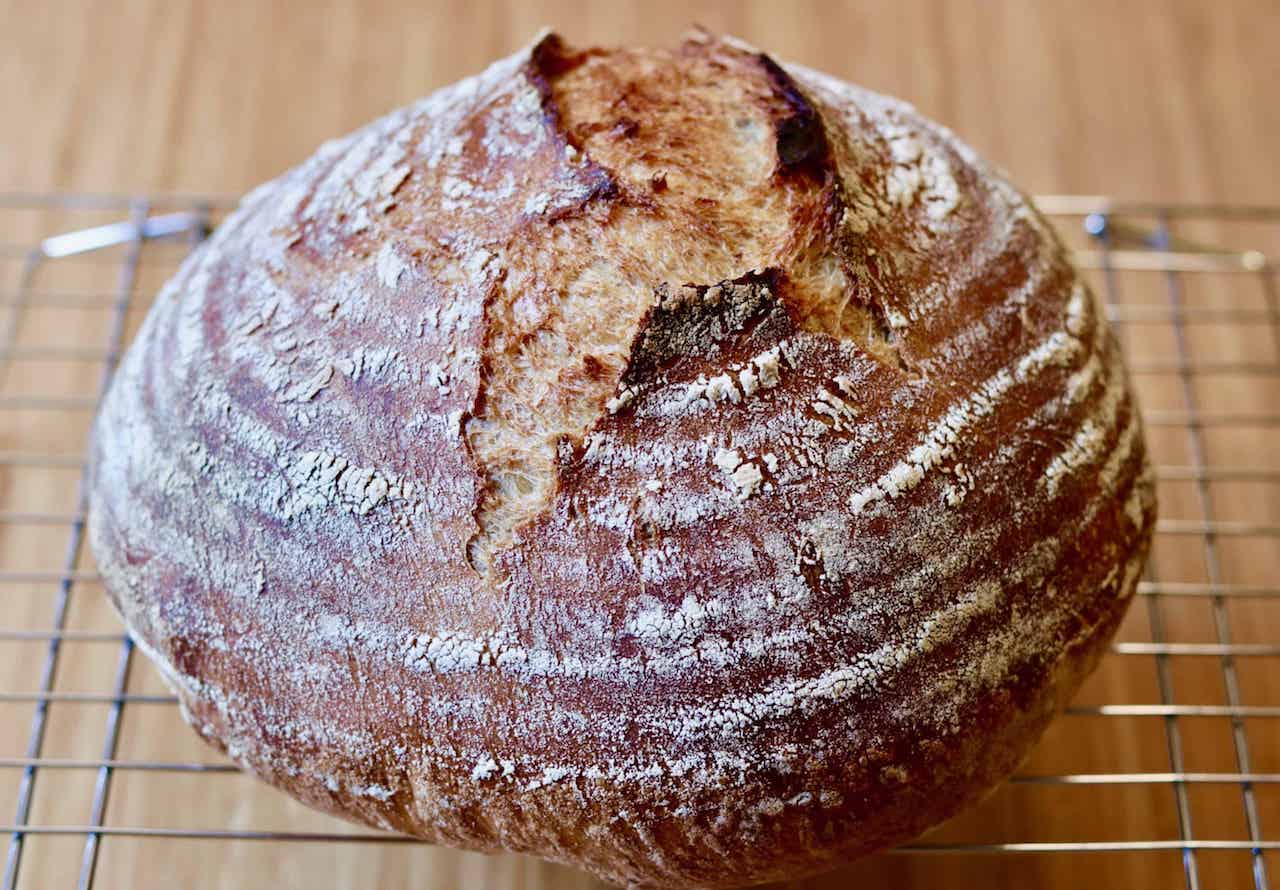Interview: Fumi Tanakadate talks piano, taiko, fue, and writing music
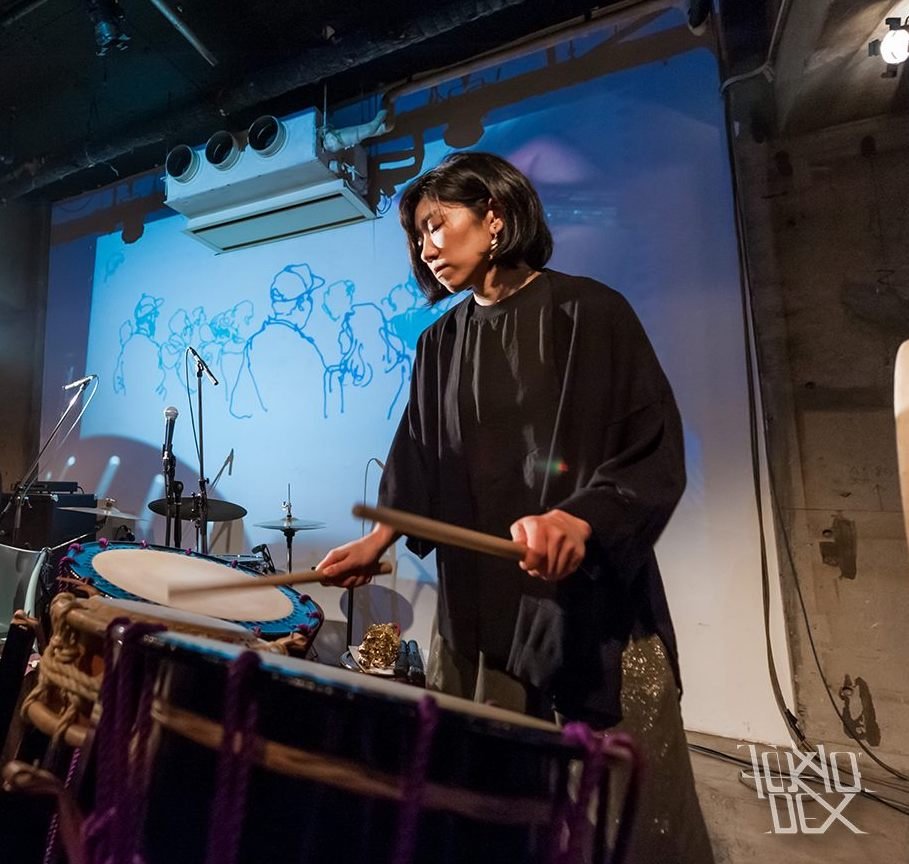
Photo by Michael Holmes
It was fun talking with Fumi for this interview. We first met several years ago during one of my Brooklyn trips to visit Kaoru Watanabe. Even though we haven’t had many opportunities to play together, I have always appreciated her clear musicality. Fumi is one of the most solid taiko and fue players I know and her work spans a wide range of musical genres and artistic disciplines. And of course she is highly accomplished on her main instrument, the piano. I’m sure that if we were based in the same town, our musical paths would be much more interconnected. Hopefully there will be increased chances to work together in the near future.
In the interview, Fumi talks about her musical beginnings in Tokyo and how she ended up as a member of the taiko class at Wesleyan University. We also discussed her experiences as a student of Kaoru which eventually resulted in performing in his groups and helping to teach at his taiko school. I also enjoyed hearing about composing for fue and piano because we all seem to have different approaches to writing for this somewhat unusual instrument combination. Finally, it was enlightening to discuss Fumi’s current nohkan and Edo Bayashi studies, especially because of who her teachers are. Thank you to Fumi for taking time to record this conversation.
Included in the interview are excerpts of music recordings that Fumi sent me. They are:
Sketch 01 - Fumi Tanakadate
Kimigayo - Hiromori Hayashi, Yoshiisa Oku (arr. Fumi Tanakadate)
Momotaro - Teiichi Okano (for Crossing Jamaica Avenue)
Senkou Hanabi - Fumi Tanakadate
Uplifting - Fumi Tanakadate

Fumi Tanakadate is a versatile music artist, specializing in piano, Japanese percussion and bamboo flute, who has a unique combination of an expertise in European Classical music and a background in traditional folk dance and music from Japan. Fumi studied and worked extensively with Kaoru Watanabe, performing at such venues as Joe’s Pub, National Sawdust, Pioneer Works, the Metropolitan Museum of Arts, the Rubin Museum of Art, Super Deluxe in Tokyo and at PASIC, Percussive Arts Society International Convention. Fumi has also collaborated with Shane Shanahan of the Silkroad Ensemble, Brooklyn Raga Massive, Chieko Kojima and Yuta Sumiyoshi of KODO, Alicia Hall Moran, Sonoko Kawahara (theatre director), Parijat Desai (dancer), Garrett Fisher (composer), Satoshi Takeishi, and Kiyohiko Semba.
One of her recent projects was an unconventional trio with an erhu player Ying-Chieh Wang from Taiwan and a janggu player Woonjung Sim from South Korea, sharing and creating a new perspective on traditional music as part of Contemporary Music Platform, a residency at National Kaohsiung Center for the Arts in Taiwan.

Photo by Bedouin Hao
Fumi currently teaches at Wesleyan University and serves as the primary instructor at Kaoru Watanabe Taiko Center, giving classes and educational workshops at local schools and colleges. She has also taught at North American Taiko Conference, East Coast Taiko Conference, and European Taiko Conference.
As a classical pianist, Fumi has performed throughout Japan, tri-state area, Austria, and Spain. She holds a Bachelor of Arts degree in Earth and Environmental Sciences from Wesleyan University and a Master of Music degree in piano performance from Manhattan School of Music.
Fumi’s webpage
http://www.taikonyc.com/fumi-tanakadate
